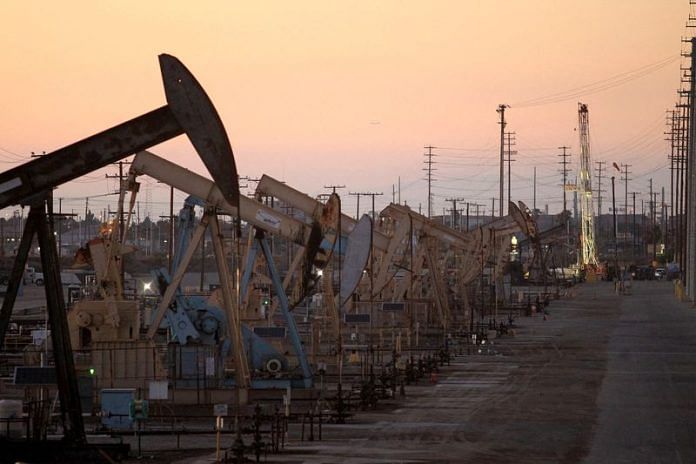By Arathy Somasekhar
HOUSTON (Reuters) -Oil prices edged higher on Tuesday as the market focused on uncertainty over a potential Gaza ceasefire and some expectations that producer group OPEC+ will extend voluntary supply cuts in March.
Brent crude futures were up 77 cents, or 0.93%, to $83.3 a barrel at 11:49 a.m ET (1639 GMT). U.S. West Texas Intermediate crude futures (WTI) were up 88 cents, or 1.1%, at $78.45.
Israel and Hamas, as well as Qatari mediators, all sounded notes of caution on Tuesday about progress towards a truce in Gaza, after U.S. President Joe Biden said he believed a ceasefire could be reached in under a week to halt the war for Ramadan.
Also supporting crude were comments from Yemen’s Houthi spokesperson, who said the group’s operations in the Red Sea would stop only when Israeli “aggression” against Gaza ends and the siege was lifted.
Houthi missile and drone attacks on international shipping have driven up the cost of transporting energy products and contributed to a tighter market.
“I think that the price action itself is calling attention to a tight physical balance in the market,” said Tim Evans, an independent oil market analyst.
Elsewhere, OPEC+ will make a decision in March on whether to extend voluntary production cuts to bolster prices.
“We expect OPEC+ to announce the rollover of voluntary production quotas, at least until the June Ministerial Meeting, to provide additional support,” Helima Croft, of RBC Capital Markets, said in a note late on Monday.
Meanwhile, there have been signs that Chinese oil demand could pick up and push prices higher.
Global crude oil markets are expected to be fairly stable this year at around $80 a barrel, Russel Hardy, chief executive officer of oil and gas trader Vitol, said.
Speaking at the Energy Institute conference, Hardy also said global oil demand was expected to peak in the early 2030s.
Also on Tuesday, Russian authorities announced a six-month ban on gasoline exports from March 1 to compensate for rising demand and to allow for refinery maintenance.
Both oil benchmarks had settled more than 1% higher on Monday after declines of 2-3% over the previous week as markets factored in a greater likelihood that cuts to interest rates might take longer to come than previously expected.
Kansas City Federal Reserve Bank President Jeffrey Schmid on Monday signalled that he, like most of his central banking colleagues, is in no rush to cut rates. High borrowing costs typically reduce economic growth and oil demand.
The American Petroleum Institute industry group’s weekly U.S. crude inventories data is due to be released at 4:30 p.m. EST (2130 GMT).
(Reporting by Paul Carsten in London, Arathy Somasekhar in Houston and Andrew Hayley in BeijingAdditional reporting by Ahmad GhaddarEditing by David Goodman and Mark Potter)
Disclaimer: This report is auto generated from the Reuters news service. ThePrint holds no responsibilty for its content.



